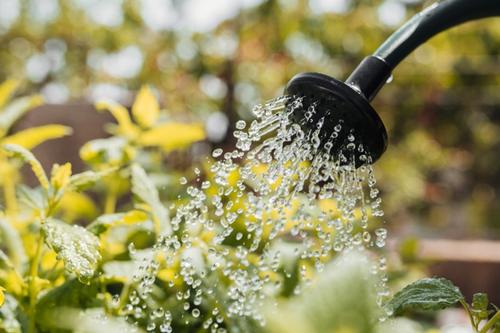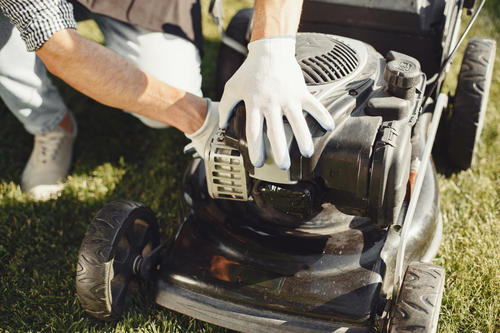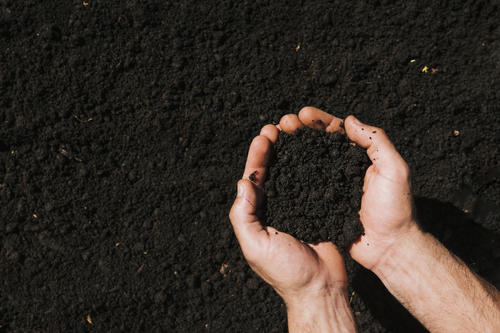How to Make Your Garden Eco-Friendly
How To Make Your Garden Eco-Friendly
With environmental issues including global warming and climate change at the forefront of everyone’s mind, a great way to do your part for the environment is to create an eco-friendly garden. We have accumulated a list of ways in which you can create your ideal eco-friendly garden that will not only make your life easier, but will have a positive effect on the environment.

1. Plant Flowers for Pollinators
A fairly simple way to start making your garden more eco-friendly is to plant more flowers! By planting flowers and herbs, created using wooden sleepers in your garden you will be encouraging bees and other pollinators (e.g., Butterflies) to visit your garden. AND as they travel from flower to flower, they also pollinate them, enabling them to set seed or bear fruit!
To create your perfect ‘nectar café’ we suggest you plant, using high quality soil, a variety of colourful flowers, that bloom for a long period of time, and even ones that release their scent in the night time, meaning pollination is happening in your garden all day long!

2. Water Conservation
If planting is not your calling and you’d like to contribute in other ways that are less laborious, we highly recommend doing your part by conserving water. There are a variety of ways you could conserve water: one way could be to have artificial grass in your garden that don’t require watering.
A second way to conserve water is to use some sort of bucket or large bag, like our jumbo bags, to collect rain water, this way you don’t need to add to your water bill and reusing what the nature is providing. You can use this rain water to water your plants and vegetables!
And finally, mulches help to conserve soil moisture, reducing the amount you have to water by as much as two-thirds (when in shade).

3. Save Electricity
As we have mentioned earlier, artificial grass has many benefits. To add one more to the list, they are also great if you want to save electricity. As we know, electricity takes a huge amount of energy, contributing heavily to global warming. Therefore, by having artificial grass you can avoid using any electrical equipment to cut and maintain your grass.

4. Use Peat-free Soil
It’s important to understand what ‘peat’ actually is. Peat is produced by the decomposition of bog plants, and because of that peat is formed in the watery environment of an oxygen-free bog it decomposes into carbon. The carbon stays in the bog, locked away from the atmosphere. So, when peat-based soil is created we dig out these pockets of carbon and in doing so green-houses gases are released and after the mining is complete methane and carbon dioxide is released into the atmosphere.
Furthermore, rare birds, butterflies, dragonflies and plants disappear when the structure of the bogs are compromised, making it more detrimental to the environment. This is also to suggest that, when possible, choose peat-free soil rather than ones that contain peat.
By choosing a soil that is 100% peat-free, you're opting for a soil that maintains its high quality, while being sourced in an environmentally-friendly way. We're very proud that all of our Wessex® soils that we supply at the Stone Zone are peat-free, ensuring that your garden projects are green and friendly to the environment.

5. Grow your own food
Delicious fresh produce is not the only benefit of growing your food in your garden. Using wooden sleepers and soil that’s ideal for produce growth, you can create beautiful vegetable patches and grown your own fruits and veg!
When you purchase produce from supermarkets, more often than not they have probably travelled 1500 miles to be there – this creates an insurmountable level of fossil fuel to be emitted.
By growing your own food in your own back garden ensures that you are not contributing to the fossil fuel burning that is so detrimental to the planet. A bonus of using our specialised soil is that you don’t have to add pesticides and other chemicals to help your produce grow – this is also priceless for the environment.

6. Flood Prevention
In order to make sure that your front or back garden doesn't become flooded, we’d recommend utilising permeable products. Artificial Grass is super beneficial in that it is permeable, which means they let water through and help prevent flooding. Grass Turf is also a great permeable option as they are efficient at letting water to drain through them and lower the risk of any floods. The same goes for Sandstone Paving which is also excellent at letting water through to lower any flood damage that may occur.
If you’d like to know how to rewild your garden, check out this blog post by Love Garden Birds.
We hope you can take away a few of these methods and implement them in your own garden and do your part to be more eco-friendly!

